Ingonish Beach, Nova Scotia, Canada
Architects: Stanley Thompson (1939), Graham Cooke (Renovation, 2000), Ian Andrew (Restoration, 2012)
6,592 Yards, Par-72
Rating/Slope: 73.3/141
My Quick Review: A genius routing takes the player on one of the most adventurous journeys in golf.
The journey to Highlands Links starts off for many from Sydney, NS. Along the way, one must take the Englishtown Ferry, which is little more than a make-work project and traverses no more than 100 feet!

Much of the drive to Highlands Links is anything but thrilling, but as one gets nearer to Ingonish, the road begins to wind, the terrain rises and falls, and the views of the water become more prevalent...



Adjacent to Highlands Links is the historic Keltic Lodge

Facilities at the Canada Parks owned Highlands Links are simple but adequate...

And along the journey that is Highlands Links, one is sure to make a few new friends (just don't get too close!)...



Onto the golf. All photos and yardages will be from the 6,592 yard, Par 72 Blue (back) tees (73.3/141):


Hole 1: Par 4, 405 Yards -- The first is no tame opener, a mid-length par-4 made much longer playing straight uphill to a green that asks for an aerial approach. Though on a smaller scale than some other holes at Highlands Links, the first gives an introduction to the wild, natural and seemingly untamed fairways that are a Highlands Links signature.





Hole 2: Par 4, 447 Yards -- While the first is decent enough way to get away from the clubhouse, the 2nd is the first of several world-class holes at Highlands Links. The tee shot is blind over a small rise in the fairway. Golfers brave enough to play down the right side of the fairway may find a speed-slot.

Like the 1st fairway, the 2nd fairway heaves and rolls, with undulations that must near 10 feet high.


Even if the fairways are running, the preferred approach to the 2nd will be an aerial one, as the green is set just over a rise in the fairway.


The width and elevation change on the 2nd can make the size of the rise to the green feel small, but this picture shows that there is every bit of 10 feet of elevation from green surface to the bottom of the dip.

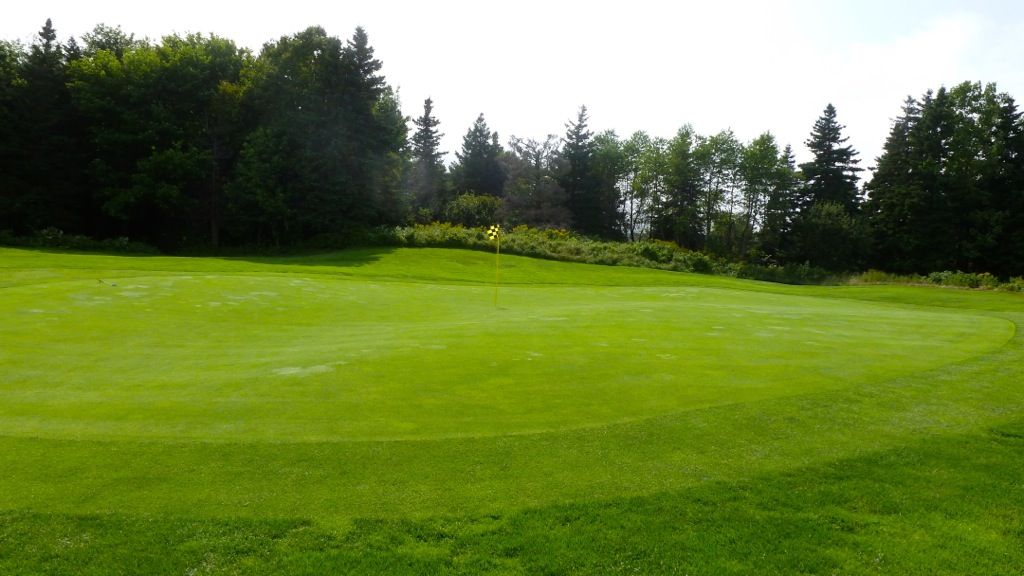
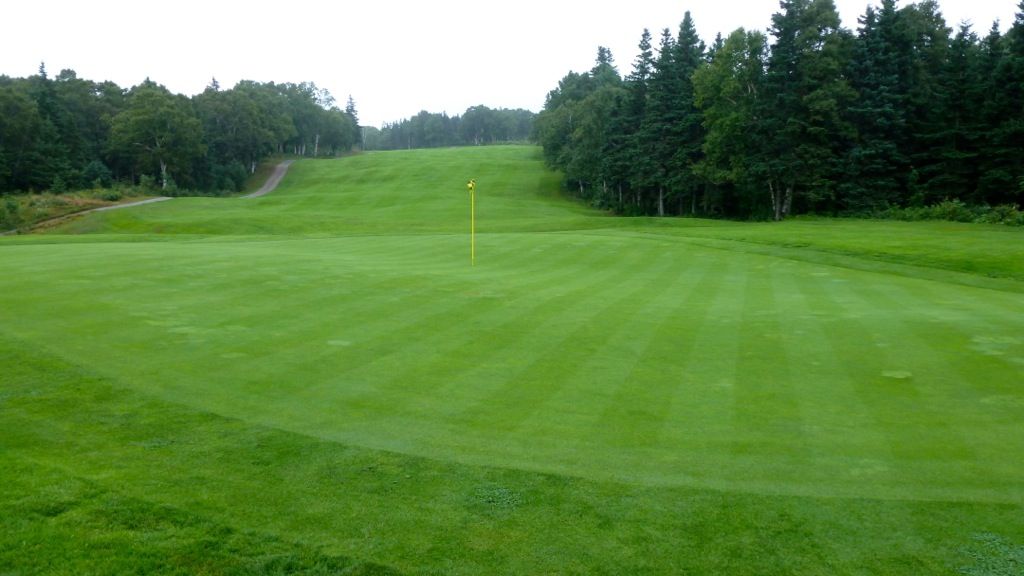
Hole 3: Par 3, 160 Yards -- The 3rd at Highlands Links may get forgotten, but that is only because it is sandwiched between two all-world golf holes. Looking right from the tee box affords the golfer with a tremendous view of the water, though the water is not (should not be) in play on this hole.
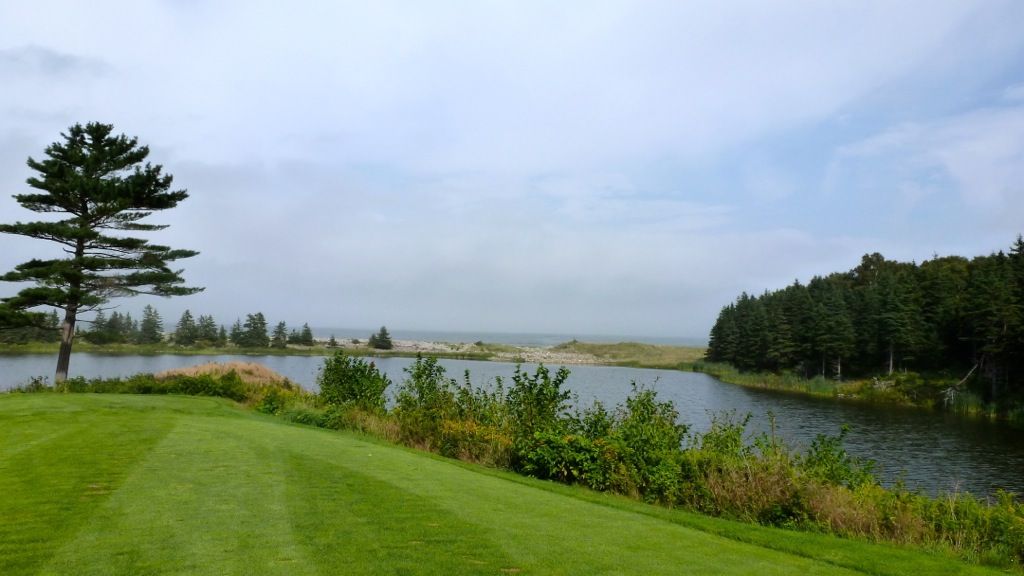
The tee is slightly elevated and with no trees to protect the golfer from the elements, wind should be a major factor at the 3rd.

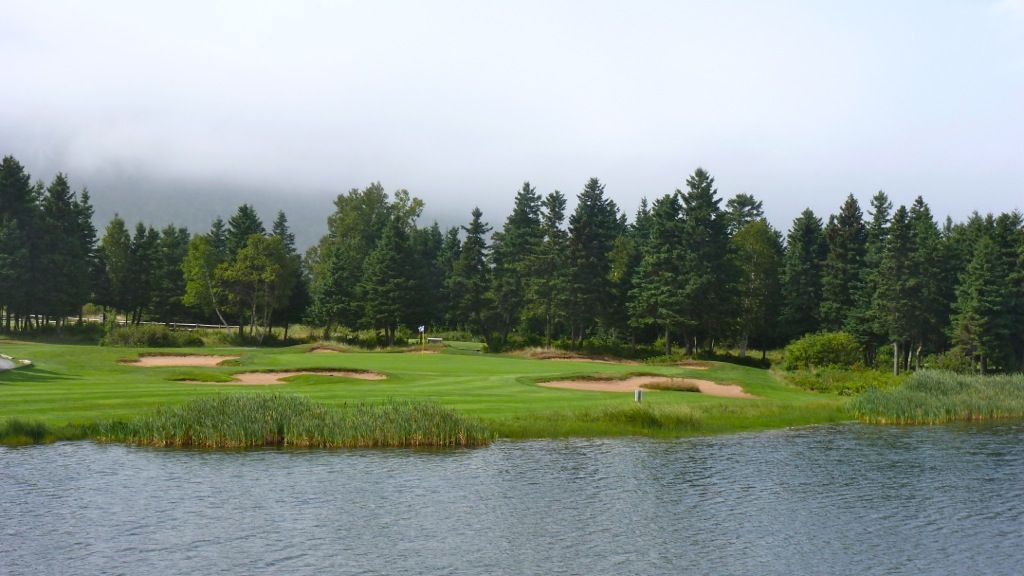
The green is open in front but bunkered on the remaining three sides.
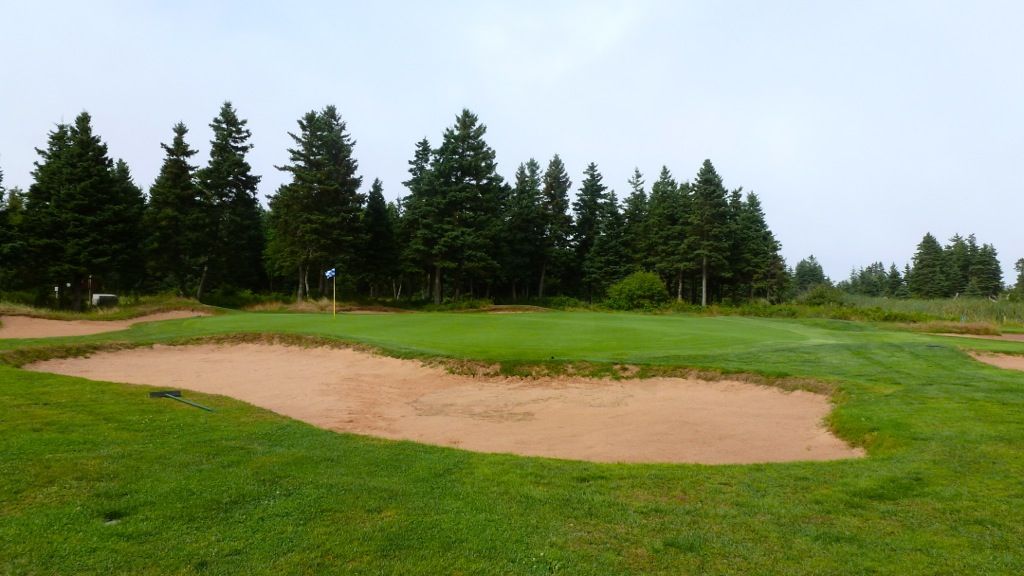
This 'S' bunker guards the front portion of the green. Unfortunately, I couldn't find the 'T' bunker.
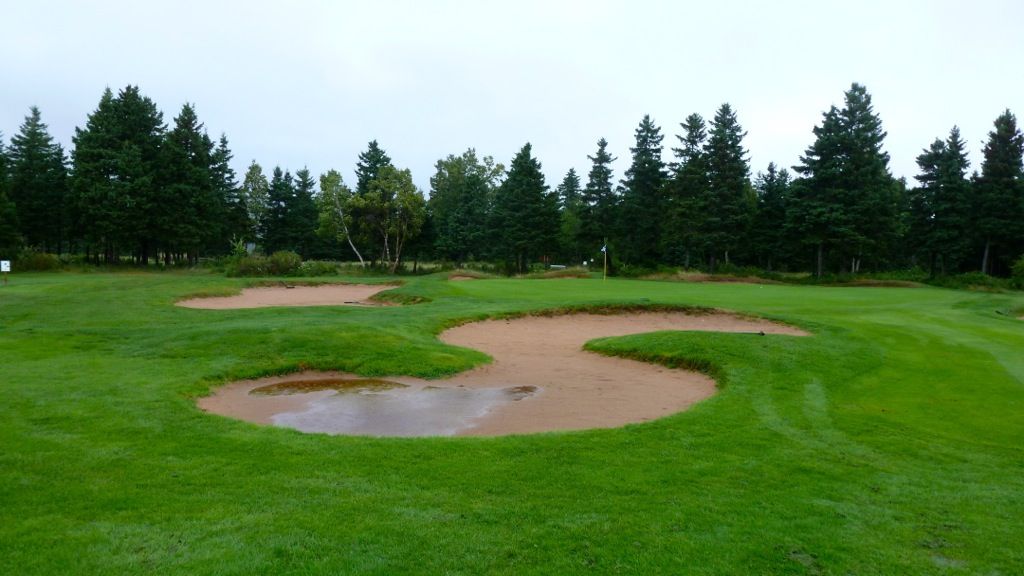
A pair of diagonal ridges trisect this small-ish green.
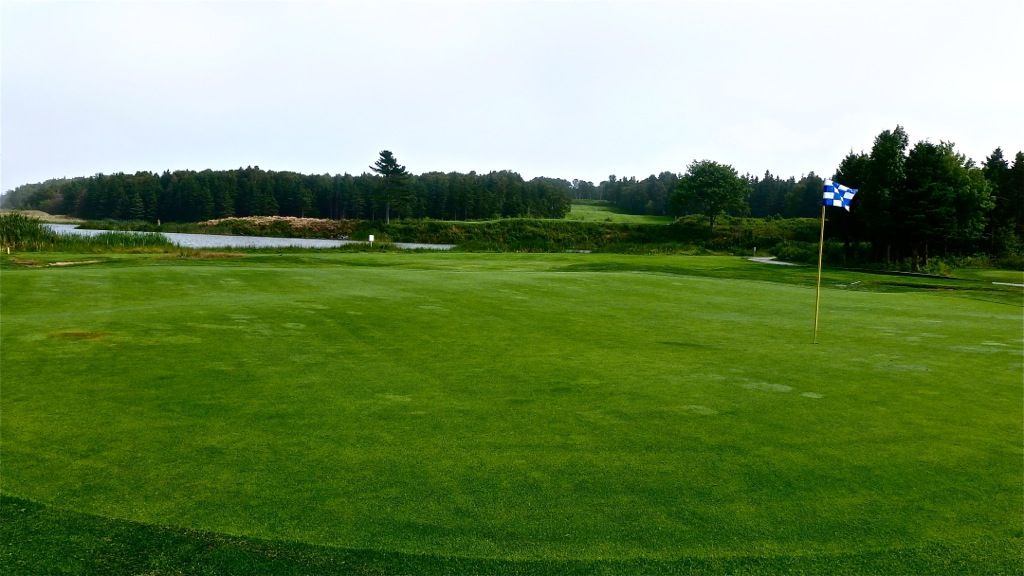

Hole 4: Par 4, 275 Yards -- A truly world-class short par-4. The first picture is from the original tee (which I was told is rarely, if ever, used) and the second picture is from an added back tee (at 324 yards) which takes away much of the interest in the tee shot. Some may be tempted to drive the green as it's only 250ish yards to the front edge of the green, but the target is narrow and extremely protected. Those laying up must control there distance. It is a carry of 170 yards to crest the hill that runs across the fairway, but tee shots over 210 yards will run into a hollow, leaving an awkward and blind uphill pitch over bunkering.

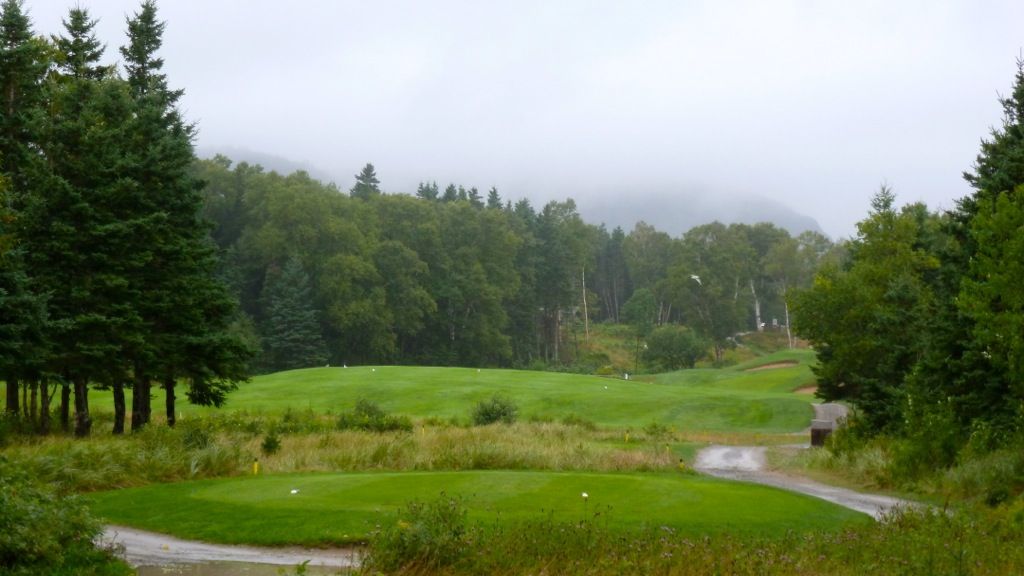
The approach from the perfect lay-up tee shot, 90 yards out from the green.
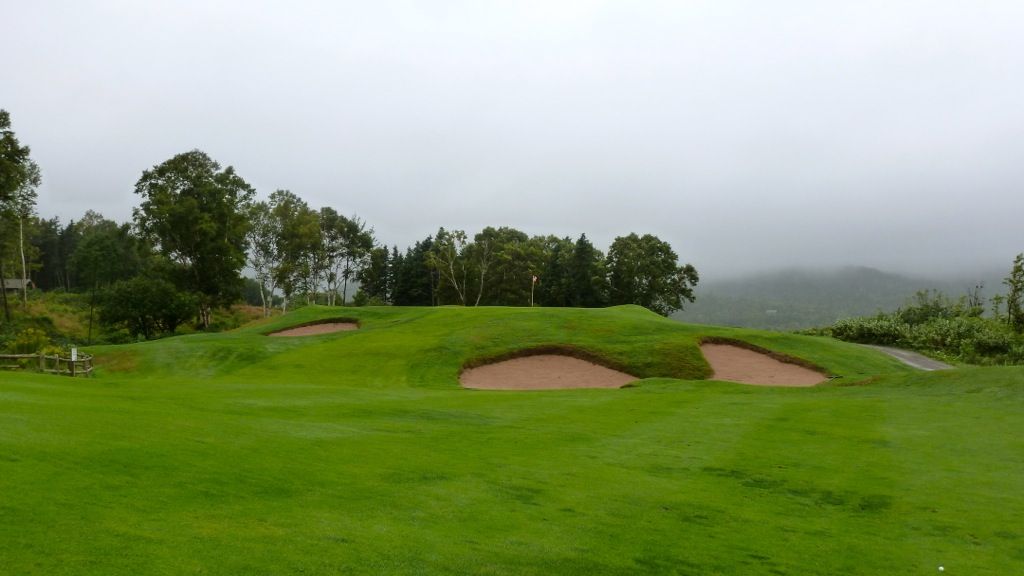
The green rolls naturally with the terrain until a built-up back-stop protects shots just a bit long from tumbling down a steep fall-off.


From behind:

From 5th tee:
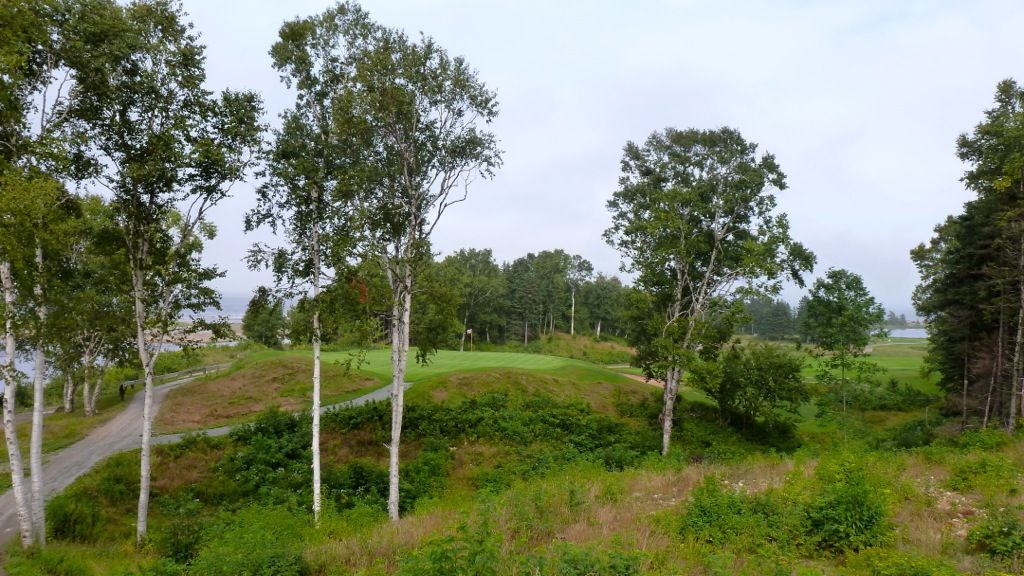
Hole 5: Par 3, 164 Yards -- The 5th hole is named 'Canny Slap' as it requires a precise approach to find this shallow putting surface. The Highlands Links website notes that locals often take the 'canny' approach of the backboard and sideboards to avoid the large false-front. Of particular note is the 'Dragon and Fireball' pair of bunkers short-right of the green, recently restored by Ian Andrew. I understand that he may have tinkered with it a bit on his latest visit to Highlands, so they may look slightly different than pictured.
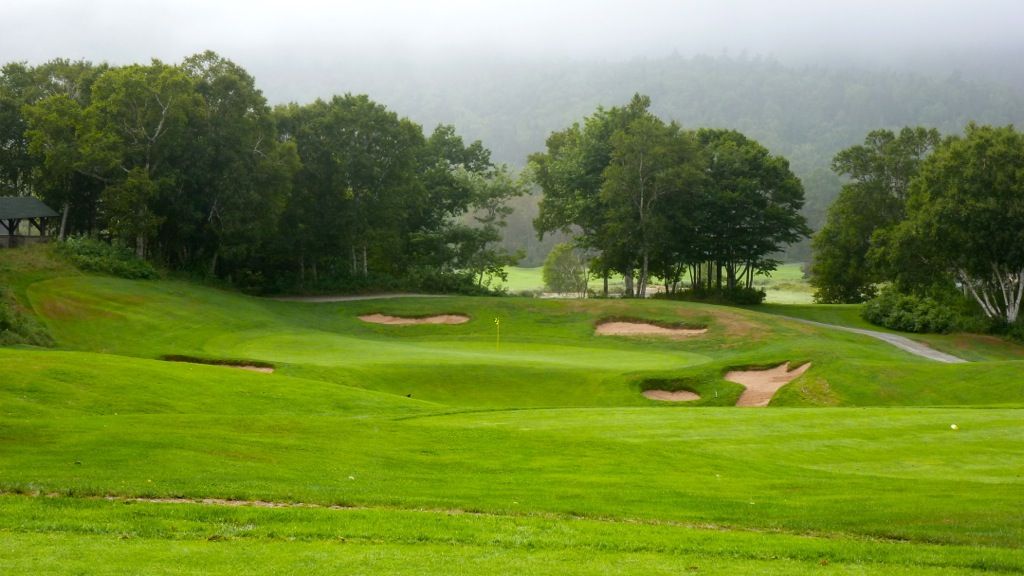

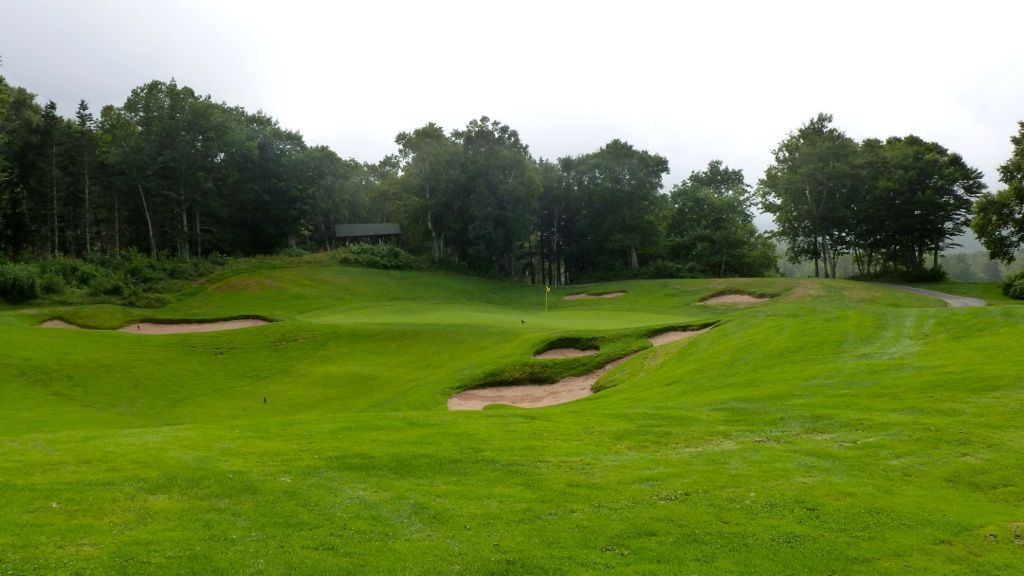
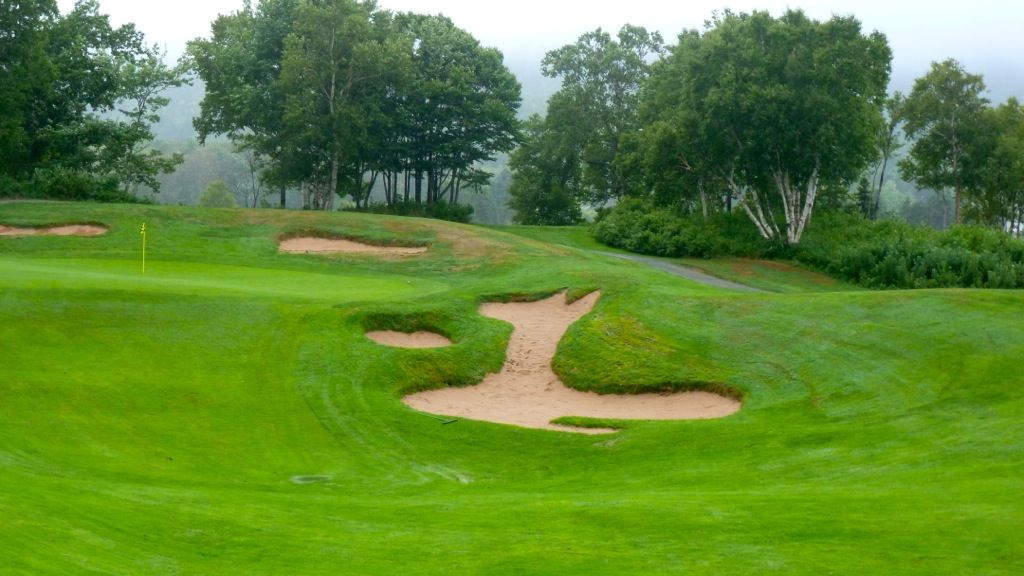


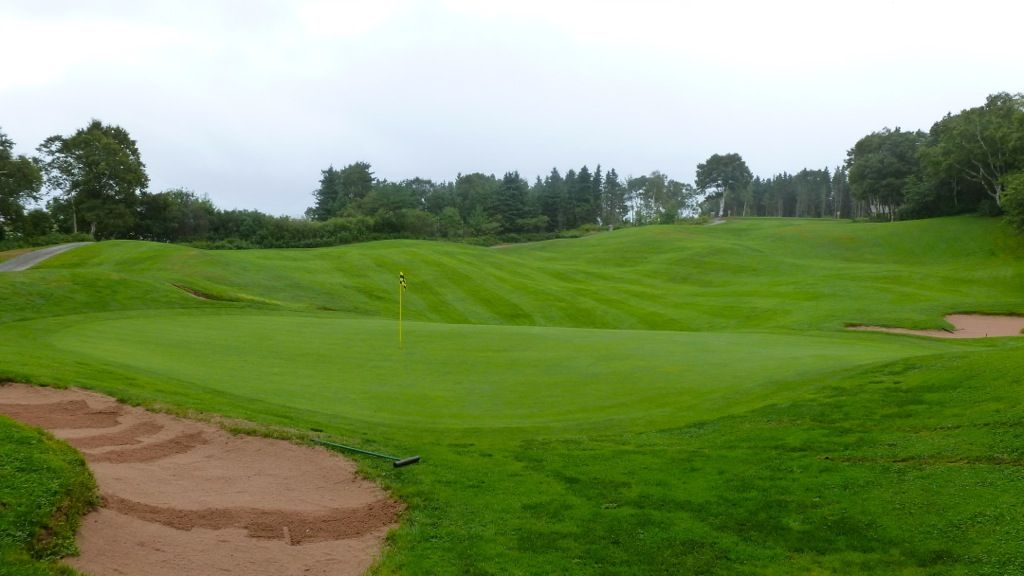
Hole 6: Par 5, 537 Yards -- The first of back-to-back par-5s. Aside from a hazard down the right side of the fairway, the tee shot from the white tees is not a difficult one; however, if the golfer plays the blue tees, he is confronted with a daunting task. Graham Cooke added a tee that requires the golfer to play across the Clyburn (first picture), while the other back tee still has the Clyburn in play as a flanking hazard, but also requires a carry of some 230 yards to reach the fairway.
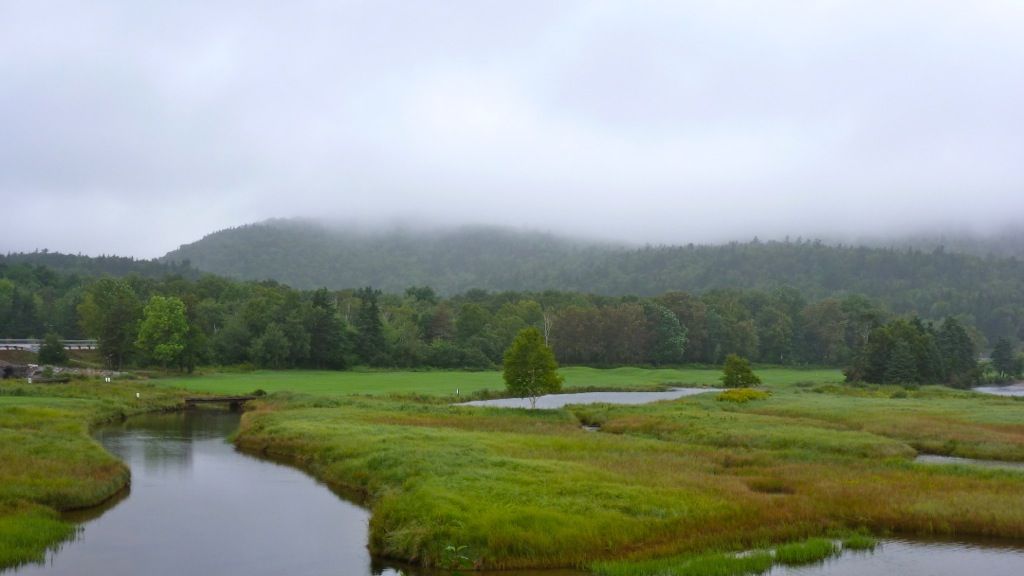
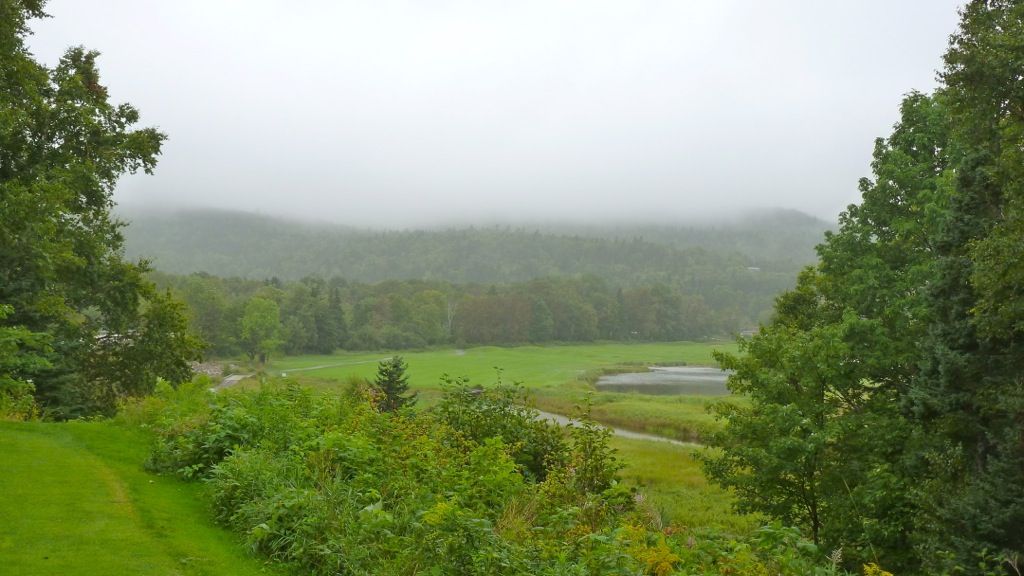
If one is laying-up, the second shot is one of the least interesting shots on the course, though bunkers do narrow the landing zone as the golfer gets nearer the green.
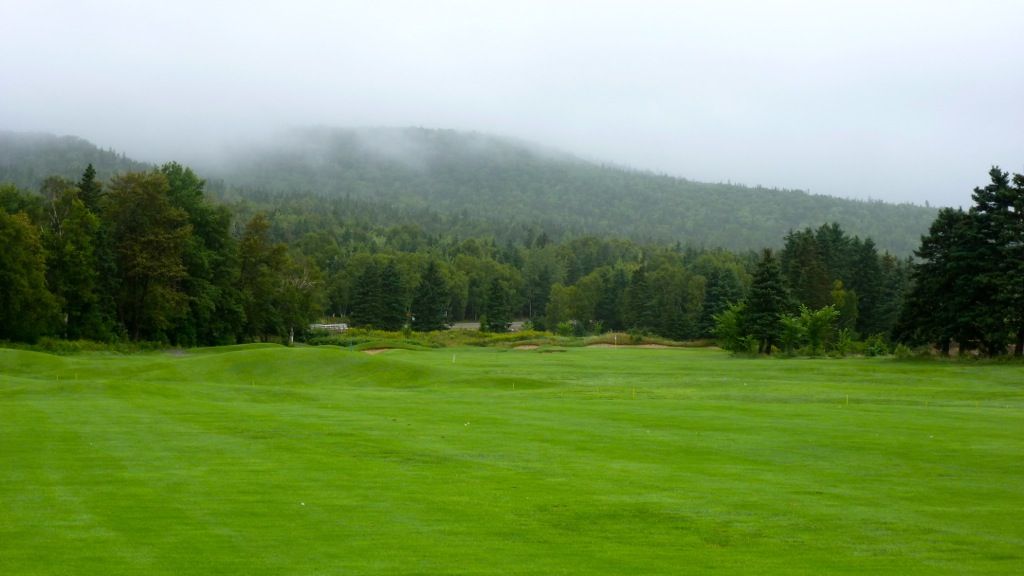
The Highlands Links website says that the hole was named Mucklemouth Meg, because, per Stanley Thompson, she "Was a loud mouthed woman in Scottish lore. As the green on the sixth hole had a yawning opening with cavernous traps on either side, we thought this name described the hole."



After completing play at the 6th the golfer takes the first of the transitions, this one away from the water and into the parkland setting of the next several holes...

Hole 7: Par 5, 570 Yards -- The 7th is the hole on the course and it is an exceptional three-shotter.
The 7th is the first of the inland holes and the transition pictured below takes the golfer away from the Gulf.
The presence of trees down both sides of the fairway give this tee shot a very narrow feeling, but at 570 yards few golfers will opt for less than driver.

The driving zone contains two landforms, the first of which will shove balls to the right, the second will kick balls to the left. Bold tee shots along the tree line may be afforded a clear look at the remainder of the hole.

While safe tee shots down the right will be blind, played over the second landform.

Once over the landform, the snaking hole moves back to the left, making the angle from a tee shot down the right that much more difficult. Staggered bunkers left and right, as well as a tilted fairway, protect the area 80-150 yards short of the green.
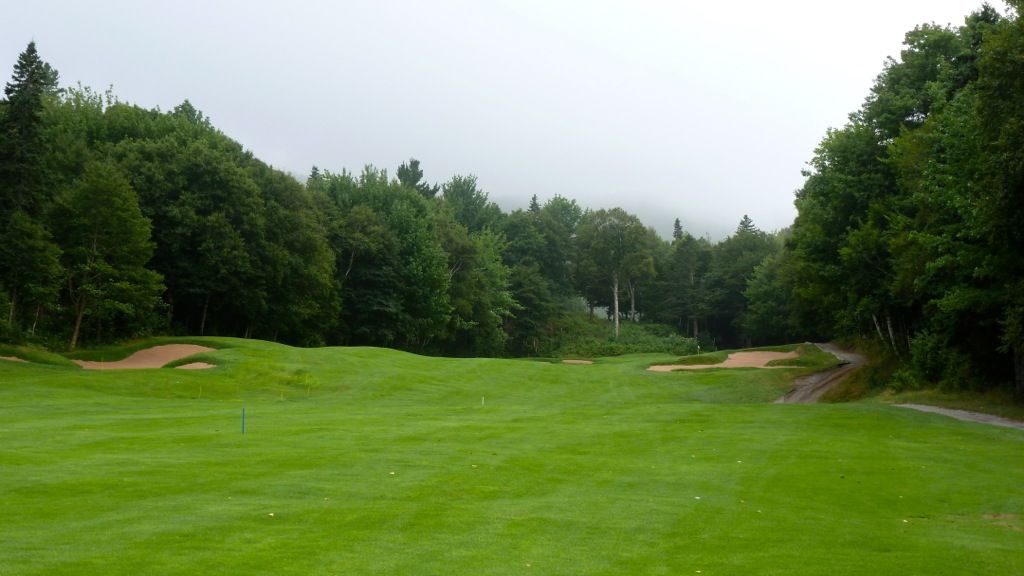
Playing to high side (left) of the lay-up area will give golfers a glimpse of the flag,
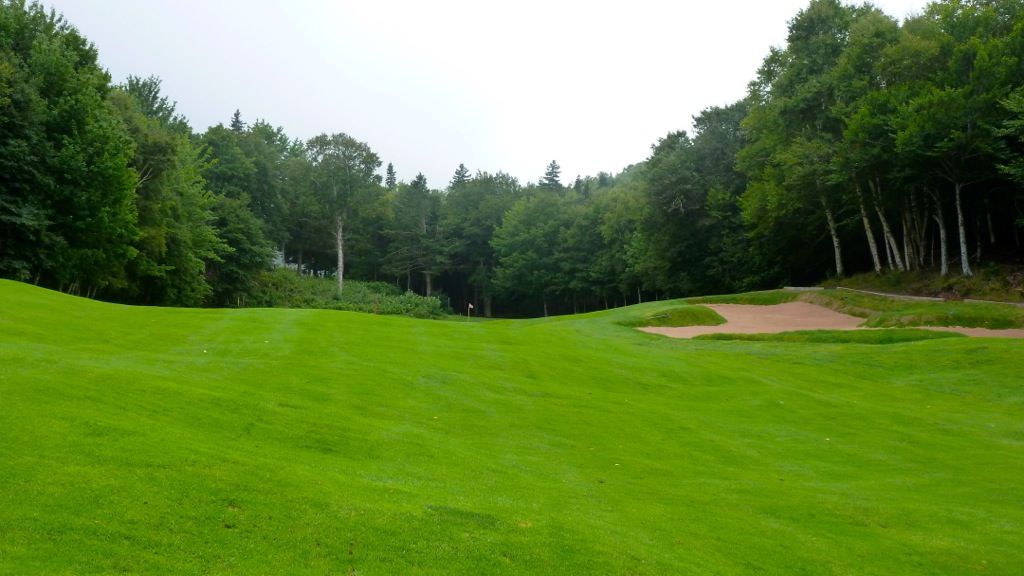
While playing to the right will leave a blind approach over this bunker of massive scale.
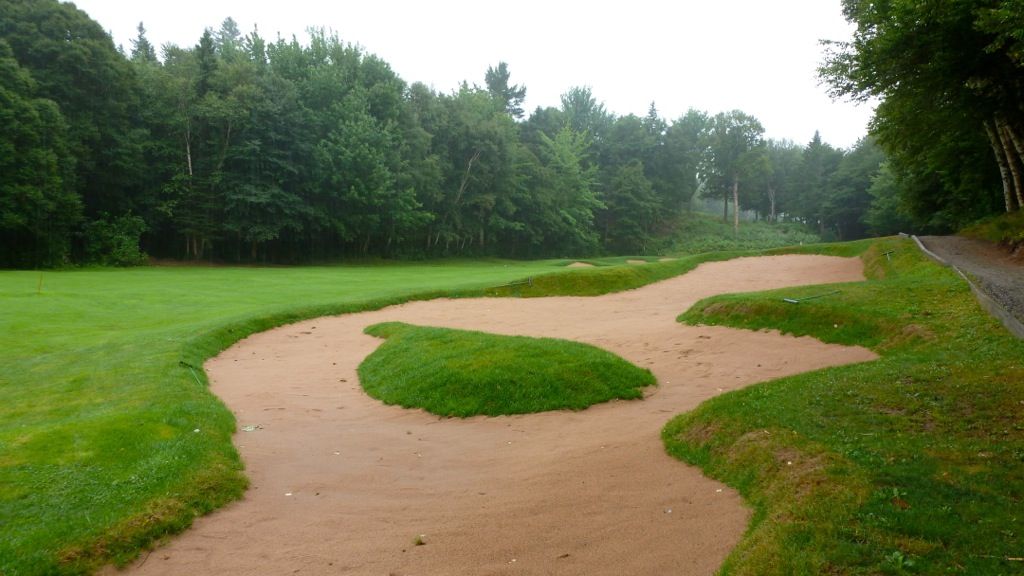

The green is fascinating, with a spine that winds through its centre, creating small bowls left and right.

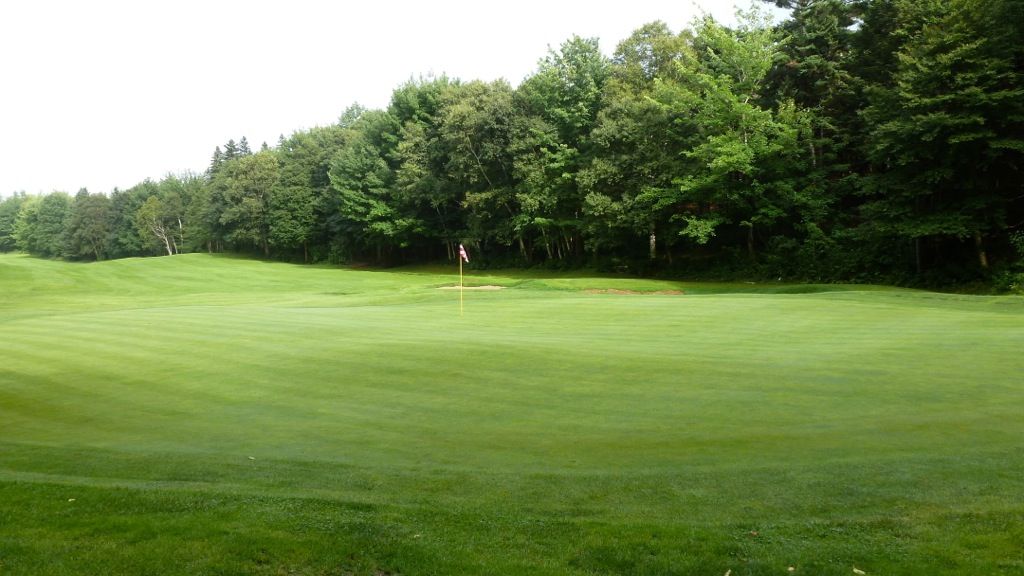
Hole 8: Par 4, 319 Yards -- A completely blind tee shot at the 8th, where the golfer must carry his drive 170 yards to crest a hill. Bunkers set into the side of the hill may intimidate some, but reasonably well-struck tee shots will carry them without a problem.
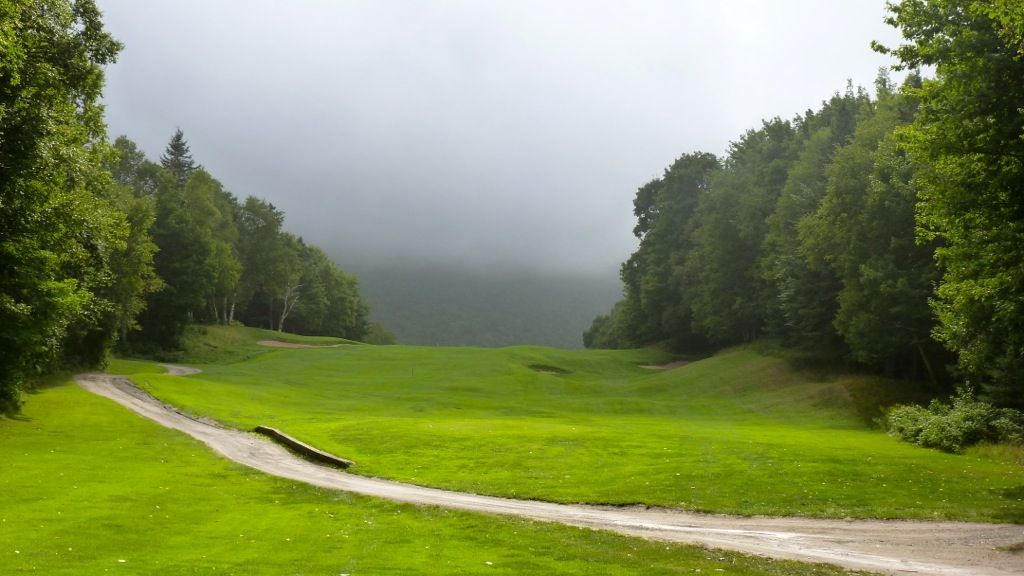
While the view from the tee suggests that the land tilts right, golfers that play up the left side of the fairway will be disappointed to see that over the hill the slope of the terrain shifts leftward. Tee shots down the left could be lost and even tee shots down the centre can find trouble in a hidden left side fairway bunker. Tee shots down the right could find the 'speed-slot' and run all the way to the green.

A flat spot 50 yards short of the green is a popular collection spot for well-struck tee balls.

This sunken green begs for a running approach from the right.
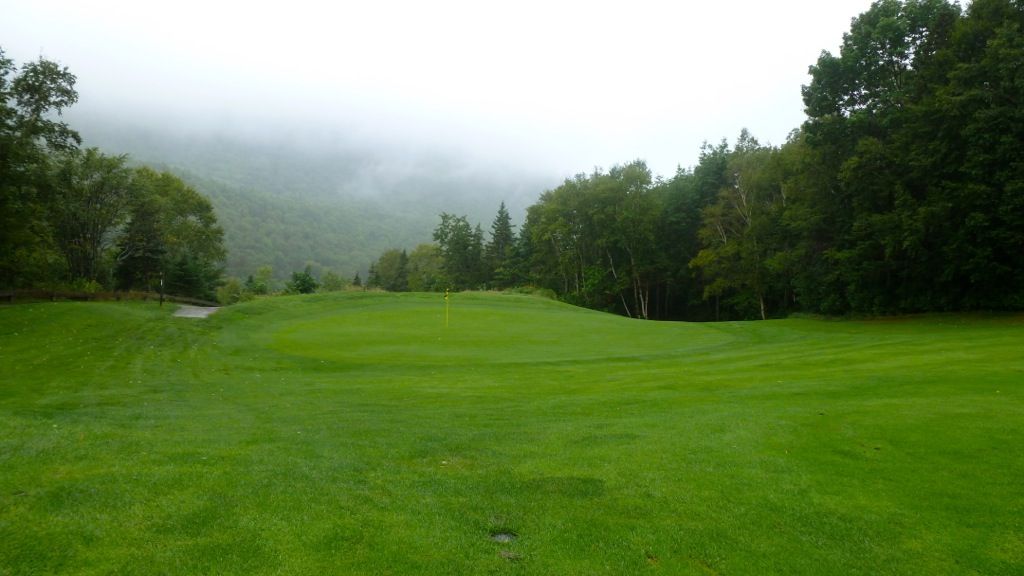

Hole 9: Par 4, 336 Yards -- The Alps at Highlands Links. A very clever par-4 where golfers must choose whether to (a) play short of the plateau in the fairway, leaving a blind approach, (b) play well left in the fairway from where a glimpse of the flag is possible, or (c) play to the narrow neck of fairway near the 100 yard marker.

Playing to the right portion of the fairway leaves a blind approach:



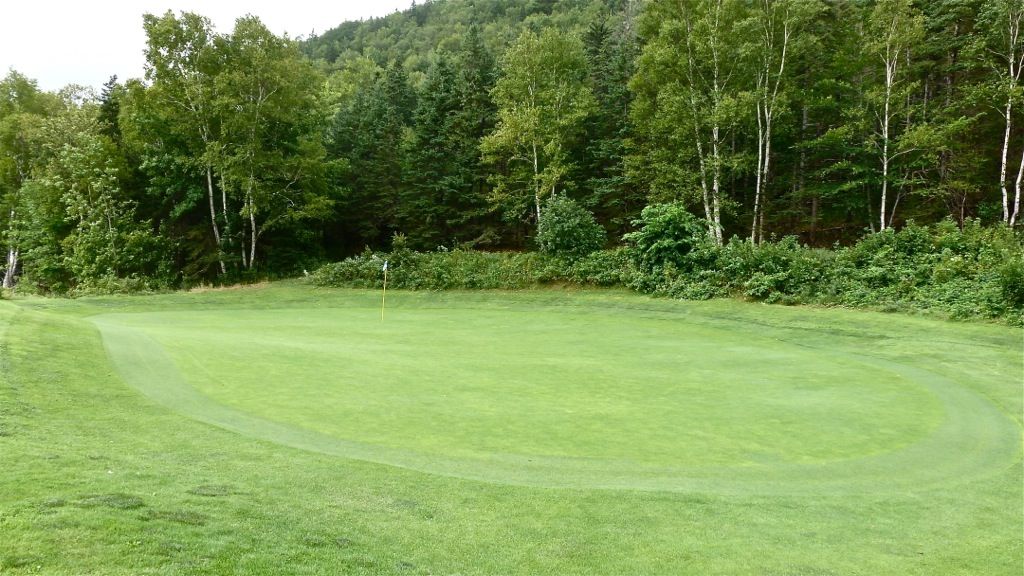
Back 9 review and photos: http://onegolferstravels.blogspot.ca/2013/04/highlands-links-golf-course-ingonish.html

Nice review of the course so far! Hope you enjoyed playing the Highlands.
ReplyDelete